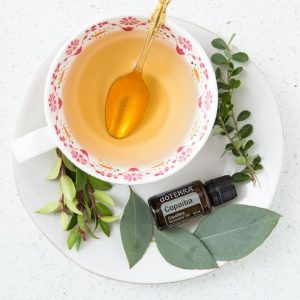
Renowned for its sweet fragrance and traditional medicinal applications, copaiba essential oil boasts numerous health advantages, offering relief for ailments such as chronic diarrhea, bronchitis, chronic cystitis, and hemorrhoids.
In Brazilian herbal medicine, copaiba oil is utilized as an antiseptic and expectorant for respiratory issues and as an anti-inflammatory agent for various skin conditions.
The health benefits of copaiba oil include:
1. Inflammation treatment: Copaiba oil’s anti-inflammatory properties aid in treating diseases by reducing the production of inflammatory molecules and countering the effects of free radicals. Studies indicate its potential in managing multiple sclerosis.
2. Arthritis pain relief: Research suggests that copaiba essential oil, combined with deep Blue oil, may alleviate arthritis symptoms, improving finger dexterity, reducing pain, and enhancing finger strength.
3. Prevention of skin infections: Copaiba oil’s antimicrobial activity fights against Staphylococcus aureus bacteria, responsible for skin and wound infections, potentially halting bacterial growth.
4. Oral health improvement: Its anti-inflammatory characteristics inhibit bacteria reproduction, especially Streptococcus mutans, known for causing tooth decay and cavities.
5. Neural disorder protection: Copaiba oil’s anti-inflammatory and neuroprotective qualities offer potential defense against acute neural disorders like brain tumors, stroke, and spinal cord trauma.
6. Acne treatment: The oil’s antiseptic and anti-inflammatory properties make it beneficial in managing skin acne. Studies reveal reduced acne-affected skin areas upon topical application of copaiba essential oil.
Precautions when using copaiba essential oil involve dilution with carrier oils to avert side effects, performing a patch test before usage for skin sensitivity, avoiding contact with eyes and mucous membranes, and consulting a doctor if pregnant or nursing.
Application methods include blending copaiba oil with carrier oils like almond, jojoba, avocado, jasmine, vanilla, lemon, orange, rose, or grapeseed oil. It can also be added to creams or lotions for topical use.









